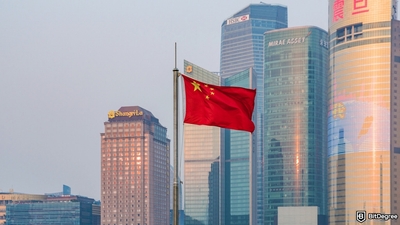Free Airdrop Season 7 is LIVE! Answer fun questions or do simple tasks to earn rewards from the $30K BitDegree prize pool. Participate Now ! 🔥
Japan to Enforce Stricter Anti-Money Laundering Measures for Crypto Transactions
Starting June 1st, financial institutions will have to comply with stricter AML rules.
Japan has taken a decisive step towards bolstering its anti-money laundering (AML) efforts in the cryptocurrency industry.
Lawmakers in the country have announced the enforcement of stricter AML measures, set to commence on June 1st. This development, reported by local media outlet Kyodo News, aims to bring Japan's legal framework in line with global regulations surrounding cryptocurrency transactions.

Did you know?
Subscribe - We publish new crypto explainer videos every week!
What is the Metaverse? (Meaning + Animated Examples)


The decision to enhance AML procedures follows the revision of legislation in December, prompted by concerns raised by the Financial Action Task Force (FATF), the international financial watchdog. The existing measures were deemed insufficient, necessitating more stringent protocols to combat money laundering in the crypto world.
One notable feature of the new measures is the implementation of the "travel rule," designed to facilitate better tracking of illicit funds.
Under this rule, any financial institution processing a cryptocurrency transfer exceeding $3,000 must transmit customer information to the crypto exchange or institution. This information includes the sender and recipient's names, addresses, and account details.
The significance of the "travel rule" gained further recognition during the G7 meeting held in Japan in mid-May.
Global leaders at the summit, through the G7 Committee, expressed clear support for the "travel rule" in crypto transactions. The committee affirmed its backing for FATF's initiatives in establishing revved global standards for cryptocurrencies, emphasizing the importance of the travel rule. It also acknowledged the need to address emerging risks from decentralized finance (DeFi) arrangements and peer-to-peer transactions.
Japan has positioned itself as a pioneer in crypto regulation by legalizing digital assets as property. The country's regulatory framework pertaining to cryptocurrencies is among the most stringent worldwide.
With Japan's decision to enforce stricter AML measures for cryptocurrency transactions, commencing in June, the country takes another stride towards aligning its regulatory framework with global standards.






















